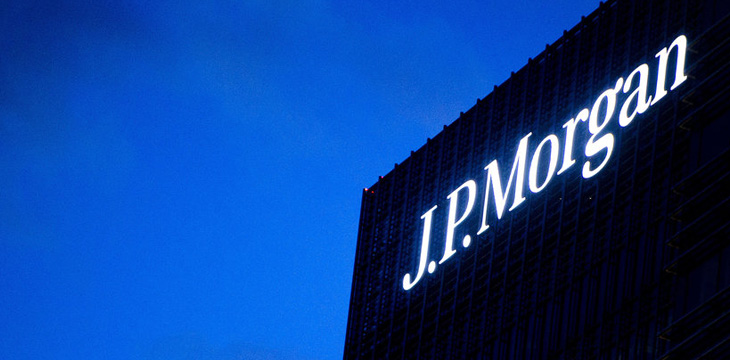
|
Getting your Trinity Audio player ready... |
Despite what CEO Jamie Dimon might say about cryptocurrencies, U.S. banking giant JPMorgan Chase is already moving towards blockchain—the technology that powers the digital coins.
Back in September, Dimon made headlines when he threatened to fire any JPMorgan employee who will trade in BTC, calling the cryptocurrency a fraud and a bubble that would eventually “blow up.”
It’s worth noting, however, that the JPMorgan CEO thinks blockchain can be useful in the future, so it shouldn’t come as a surprise when it was revealed that the multinational bank applied for a blockchain patent a month after Dimon’s tirade.
JPMorgan’s sneak move was revealed by the U.S. Patent and Trademark Office, which confirmed that the multinational bank had applied for a blockchain-related patent in October.
The patent is titled, “Systems and Methods for the Application of Distributed Ledgers for Network Payments as Financial Exchange Settlement and Reconciliation.” This amounts to a variation on blockchain technology and looks to simplify the bank’s back office operations. One wonders how far progress on this issue has been made but its certain that the bank is actively looking into blockchain technology, while, at the same time, its CEO was blasting everything cryptocurrency.
JPMorgan is one of the big players in the United States, holding the second largest position by market cap worldwide. Dimon has been pretty rabid about cryptocurrencies in recent years. When the price of BTC skyrocketed in late 2017, Dimon insisted that the cryptocurrency was a fraud, and even went as far as threatening to fire anyone in the bank who decided to trade in cryptocurrencies.
Dimon continued ranting about Bitcoin for several weeks, calling investors stupid and that they would eventually pay the price for investing in the crypto market. However, 2018 saw Dimon in a more conciliatory mood with the bank acknowledging the importance of the crypto market as a whole. With this new patent, it appears that JPMorgan is looking to tap into the lucrative remittance market, which is worth billions of dollars a year.

 11-22-2024
11-22-2024


